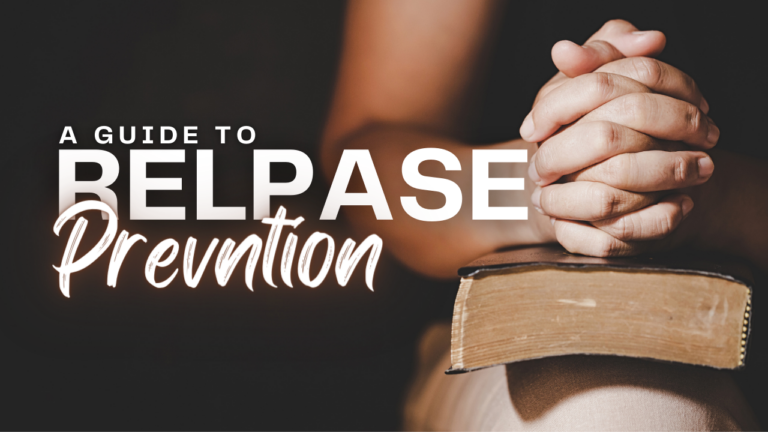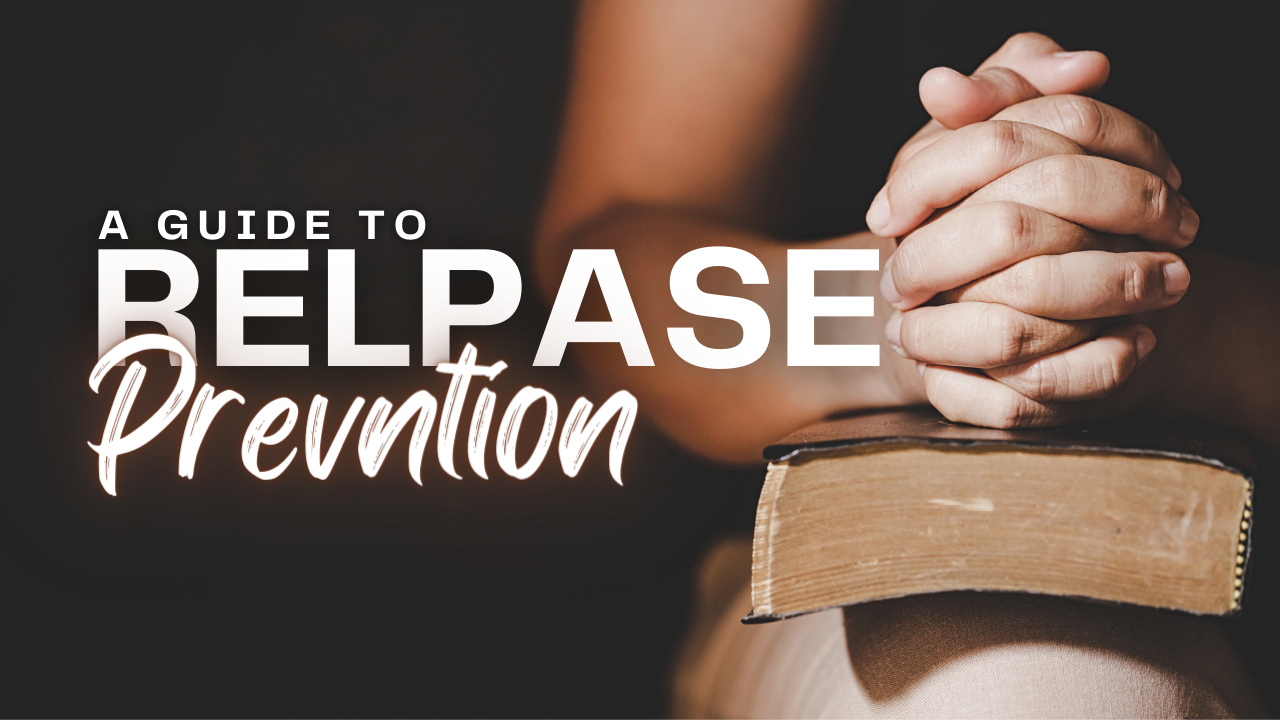
Relapse Prevention Techniques: A Comprehensive Guide
Recovery from addiction is a challenging and ongoing process that requires constant effort and dedication. While treatment programs can be effective in helping individuals overcome substance use disorder, relapse is a common occurrence. In fact, research suggests that up to 60% of individuals in recovery experience at least one relapse.
Relapse prevention techniques are strategies and skills that individuals can use to identify and manage triggers, cope with cravings, and prevent relapse. These techniques can be learned and practiced both during and after treatment, and can significantly increase the chances of long-term recovery success. In this article, we will explore some of the most effective relapse prevention techniques, including mindfulness practices, cognitive-behavioral therapy, and support groups.
Understanding Relapse and Its Triggers
Relapse is a common occurrence in addiction recovery, and it can be disheartening for those who are trying to maintain sobriety. Understanding the stages of relapse and common triggers can help individuals develop effective relapse prevention techniques.
The Three Stages of Relapse
Relapse is a process that occurs over time, and it typically involves three stages: emotional relapse, mental relapse, and physical relapse.
Emotional Relapse: During this stage, individuals may not be actively thinking about using drugs or alcohol, but they may be experiencing negative emotions such as anxiety, depression, or anger. They may also be neglecting self-care, such as skipping meals or not getting enough sleep.
Mental Relapse: During this stage, individuals may start to have thoughts about using drugs or alcohol again. They may start to romanticize past drug use or minimize the negative consequences.
Physical Relapse: During this stage, individuals actually start using drugs or alcohol again.
Common Triggers and High-Risk Situations
Triggers are events, situations, or emotions that increase the likelihood of relapse. Some common triggers include stress, boredom, social pressure, and exposure to drugs or alcohol.
High-risk situations are those that may be particularly challenging for individuals in recovery. These may include parties, bars, or other social events where drugs or alcohol are present.
It is important for individuals in recovery to identify their own triggers and high-risk situations so that they can develop effective coping strategies. This may include avoiding certain people or places, practicing stress-reduction techniques, or seeking support from a therapist or support group.
By understanding the stages of relapse and common triggers, individuals can develop effective relapse prevention techniques and maintain their sobriety.
Developing Coping Strategies
Developing coping strategies is a crucial part of relapse prevention. Coping strategies can help individuals manage difficult emotions and situations that may trigger a relapse. There are several effective coping strategies that individuals can use to prevent relapse.
Cognitive Behavioral Techniques
Cognitive behavioral techniques can help individuals identify and change negative thought patterns that may lead to relapse. This technique focuses on changing the way individuals think and behave in order to manage their emotions and prevent relapse. Some of the cognitive behavioral techniques include identifying negative thoughts, challenging negative thoughts, and replacing negative thoughts with positive ones.
Building a Support System
Building a support system is another important coping strategy for relapse prevention. A support system can provide individuals with emotional support and encouragement during challenging times. This can include friends, family members, support groups, or a therapist. Having a support system in place can help individuals stay motivated and accountable during their recovery.
Mindfulness and Grounding Techniques
Mindfulness and grounding techniques can also be helpful in preventing relapse. These techniques involve focusing on the present moment and paying attention to one’s thoughts and feelings without judgment. Mindfulness can help individuals manage their emotions and reduce stress, which can be triggers for relapse. Grounding techniques involve using the five senses to bring oneself back to the present moment. This can include deep breathing, visualization, or physical activities like exercise or yoga.
Overall, developing coping strategies is an essential part of relapse prevention. By using cognitive behavioral techniques, building a support system, and practicing mindfulness and grounding techniques, individuals can manage their emotions and prevent relapse.
Creating a Relapse Prevention Plan
When it comes to preventing relapse, having a solid plan in place can make all the difference. Here are some key steps to creating a relapse prevention plan:
Setting Realistic Goals
One of the most important aspects of a relapse prevention plan is setting realistic goals. These goals should be specific, measurable, achievable, relevant, and time-bound. For example, a goal might be to attend a support group meeting once a week for the next three months. By setting goals that are realistic and achievable, individuals can build a sense of accomplishment and progress, which can help them stay motivated and focused on their recovery.
Incorporating Self-Care and Healthy Habits
Self-care and healthy habits are also important components of a relapse prevention plan. This might include things like regular exercise, healthy eating, getting enough sleep, and engaging in activities that bring joy and fulfillment. When individuals prioritize self-care and healthy habits, they are better equipped to manage stress and cope with triggers that might otherwise lead to relapse.
Monitoring Progress and Adjusting the Plan
Finally, it’s important to regularly monitor progress and adjust the relapse prevention plan as needed. This might involve tracking warning signs of relapse, such as changes in mood or behavior, and taking proactive steps to address these signs before they escalate. It might also involve revisiting goals and adjusting them as needed based on progress and feedback from others.
By following these key steps and incorporating a variety of relapse prevention techniques, individuals can increase their chances of maintaining their recovery over the long term.
Lifestyle Changes and Long-Term Recovery
Making lifestyle changes can be a critical factor in achieving long-term recovery from addiction. A healthy lifestyle can help individuals to maintain sobriety and avoid relapse. In this section, we will explore some lifestyle changes that can aid in long-term recovery.
Diet, Exercise, and Routine
Maintaining a healthy diet, engaging in regular exercise, and sticking to a routine can help individuals in recovery to feel better physically and mentally. A balanced diet can help to restore proper nutrition and improve overall health. Exercise can help to reduce stress and improve mood. Establishing a routine can provide structure and stability, which can be particularly important during times of stress or uncertainty.
Engaging in Support Groups and Therapy
Support groups and therapy can be valuable resources for individuals in recovery. Support groups, such as Alcoholics Anonymous or Narcotics Anonymous, can provide a sense of community and support. Therapy can help individuals to address underlying issues that may have contributed to addiction and develop coping strategies for dealing with triggers and cravings.
Continuing Education and Personal Growth
Continuing education and personal growth can be important components of long-term recovery. Pursuing education or training can provide individuals with new skills and opportunities for employment. Engaging in hobbies or interests can provide a sense of purpose and fulfillment. Personal growth can help individuals to build self-esteem and confidence, which can be important in maintaining sobriety.
In conclusion, making lifestyle changes can be an important part of achieving and maintaining long-term recovery from addiction. By incorporating healthy habits, engaging in support groups and therapy, and pursuing personal growth, individuals can increase their chances of success in recovery.
At Waterside Recovery Centers we pride ourselves on providing the top addiction treatment in Massachusetts. With a range of evidence-based, client-focused and individualized treatment offerings, we are able to provide the ideal support for those seeking recovery from substance addiction. Please feel free to reach out to our help line at anytime.
(866)671-8620




